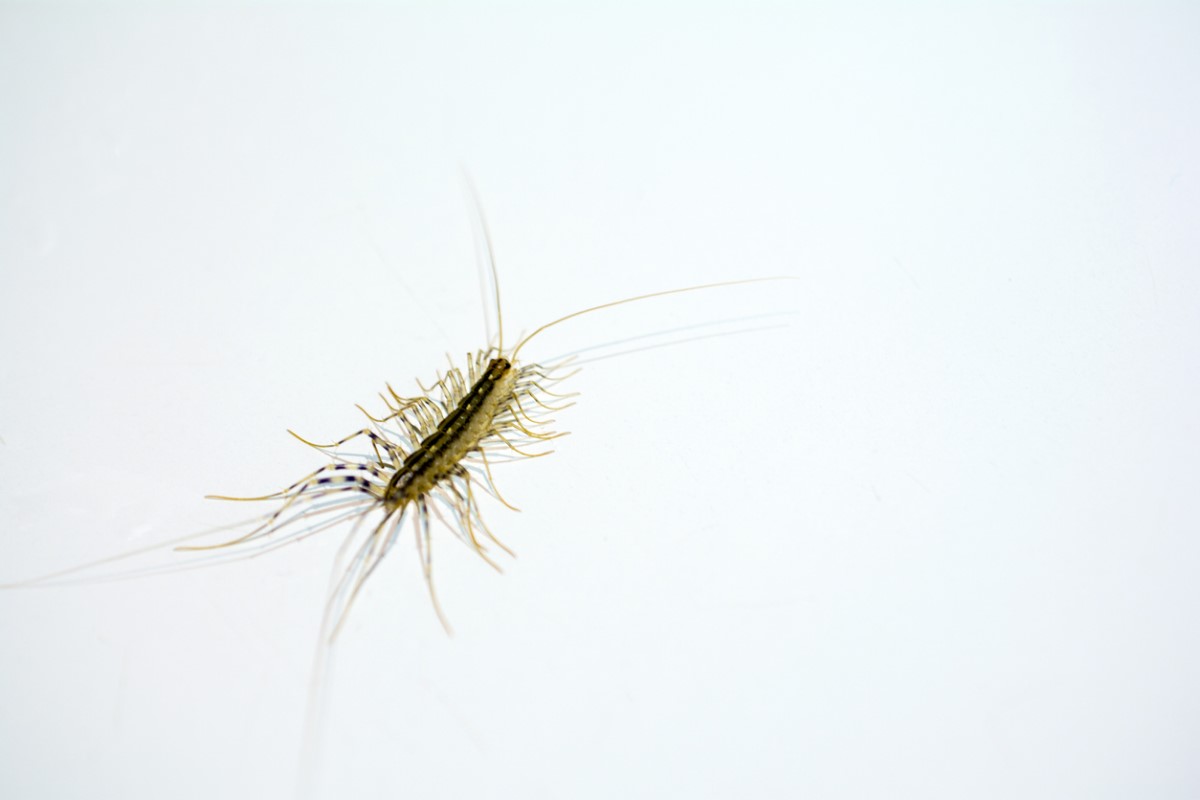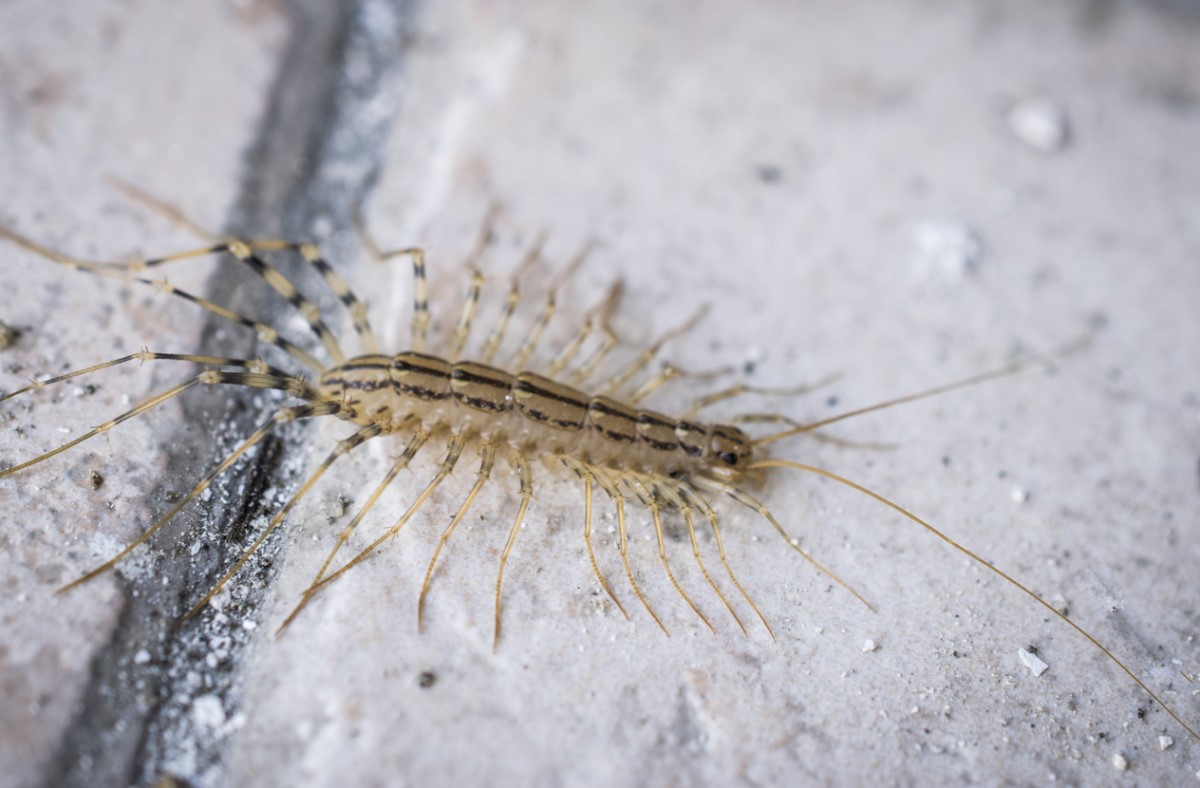

We may earn revenue from the products available on this page and participate in affiliate programs. Learn More ›
Q: Eek! I woke up last night to use the bathroom and when I turned on the light, a bug with many legs scurried under the baseboard into the wall. Is my home now crawling with house centipedes? What should I do?
A: What an unwelcome sight to bleary eyes! But while a skittering centipede is likely not anyone’s favorite houseguest, spying one doesn’t necessarily indicate an infestation nightmare. In fact, you may soon gain a new appreciation for this nocturnal, predatory arthropod, which might actually be doing you some favors.

House centipedes won’t harm people or homes.
The garden variety house centipede is yellowish to dark brown and about an inch and a half long, with 15 sets of legs that propel it incredibly quickly—some can move more than a foot per second! Creepy, yes, but relatively harmless. Unlike moths, they won’t destroy clothing or furniture, and unlike ants, they won’t wreak havoc in your pantry. While their cousins, millipedes, are herbivores that feed on wood, the house centipede is a carnivore that feasts on other insects. They use their jaws to inject poison into prey, but it’s very unlikely for one to bite a human unless it was being handled roughly. If you did sustain a bite, it would feel like a mild bee sting.
Centipedes are nature’s exterminator.
House centipedes are an all-natural form of pest control. They eat a wide variety of pesky bugs, including flies, ants, moths, silverfish, spiders, and cockroaches. The average female house centipede can lay between 60 and 150 eggs at a time. So, for every centipede you see, there could be 100 more lurking elsewhere. You’ll never know exactly how many. Fortunately, because they’re nocturnal, you’ll rarely see them.
RELATED: Don’t Kill These 17 Beneficial Insects in Your Garden
Consider house centipedes a warning of an even bigger pest problem.
Discovering a population of centipedes in your home could indicate other insects sharing your home. House centipedes will only stay where they have an ample food source. Put out sticky traps to catch the bugs centipedes are eating, then eradicate that food source with your favorite conventional or natural pesticide and the house centipedes will go elsewhere, too. Centipedes are also partial to moisture, so investigate to ensure there are no leaky pipes or appliances that need repair. If you discover no such problems, adding a dehumidifier to dry out moist areas like a basement may send the house centipedes packing.

Take it outside!
Although house centipedes are “good” bugs, they may still make your skin crawl. If you don’t want to share your home with them, rather than squash them, relocate them outside, where they’ll continue to provide pest control. Trap a centipede the same way you would a spider, by dropping a cup or jar over it and then sliding a piece of paper underneath to seal it inside. They’re fast, but it can be done.
Keep them away with a few prevention tactics.
There are various ways to keep centipedes out of your home—or at least make it more difficult for them to move in—beyond banishing the bugs they eat. In addition to using a dehumidifier, run your bathroom fan for a solid five minutes after a bath or shower to remove moisture. Seal up any cracks or crevices where house centipedes may be sneaking in, and caulk all baseboards and door and window casings. Clear any leaf litter or wood debris from around the perimeter of your home, especially if it’s damp. A combination of all of these measures is likely to reduce any centipede population you have.
